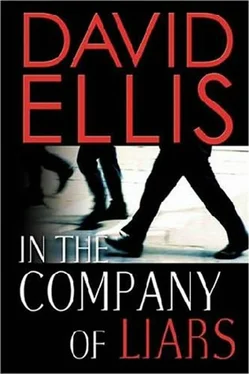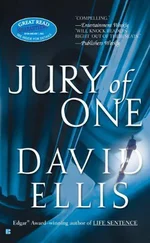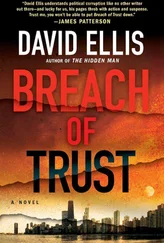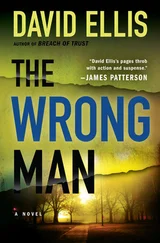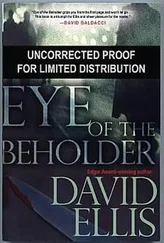Allison closes the door in the small, sparsely furnished room in the public library. This is an unexpected place to meet but, in a way, that’s the point. This library is about three miles to the south of Allison’s home, which makes it a bit closer to Mansbury College, from which Jessica had to travel to meet her.
Allison turns from the door. Jessica is wearing an oversized sweatshirt and jeans, her hair back in a ponytail. Her expression is a combination of concern and antagonism; Jess has never been able to reconcile the two over the last few months. She resents her mother but she loves her, too, and she is desperately concerned about this criminal prosecution.
Allison hasn’t seen Jessica for several weeks, so despite the urgency of this meeting, she cannot help but first take measure of her daughter. She is truly a beauty, a natural one, not relying on makeup or an extravagant hairstyle or anorexic dieting. She has a strong, intelligent face, a complexion reflecting her father’s Latino heritage and her mother’s pale skin, wide dark eyes, a full mouth. Allison has always felt that Jessica could have her selection of guys, though she no longer enjoys that notion.
There’s a guy, but you wouldn’t approve.
It’s someone at work, Mother, okay?
“Is everything okay?” Jessica asks, touching her mother’s arm. Oh, that look on her face. Jess is trying to hold everything together, something she has recently found not to be easy at all.
“It’s going to be fine, Jess. I’m sorry to be so insistent like this. And I don’t have long to talk. We-we probably shouldn’t talk very much about this.”
They shouldn’t talk, Allison means, because Jessica will be a witness at trial. Anything that the two of them say could be discovered by the prosecution.
“You went straight from campus to my house that night,” Allison says. “You were studying on campus, then you came home to get away from the noise. You got to my house at eight-thirty. You studied, fell asleep, then I came home sometime before two in the morning.”
Jessica frowns. This, almost verbatim, is what she told the police. “Did something happen?” she asks.
“I think it might be better,” Allison says, “if you simply testify that you got to my house at eight-thirty. There’s no real reason to elaborate on what you were doing before that. It’s not relevant.”
“It’s not relevant,” Jessica responds warily, “but you’re pulling me out of class in the middle of the day to have me meet you here.”
Allison drops her head.
“Did something happen, Mother?”
“Jess.” Allison raises a hand, looks her daughter in the eye. “I want you to remember what you told the police. You went into some detail about the fact that you were at the student center studying, then you went back to your dorm room, then you came to my house.”
“That’s right.”
“There’s no need to volunteer that information, but have it ready.” Allison sighs. “The best thing would be not to talk about it at all. Just to say, ‘I got to my mother’s house at eight-thirty.’ The less said on the subject, the better.”
There is a small circular table with two chairs in the room, and Jessica carefully settles into one of them. She tucks a stray hair behind her ear and stares at the table, runs her hand over the surface slowly, as if she were cleaning it with a cloth.
“Talk to Paul Riley about this,” Allison pleads. “Whatever he thinks you should do, trust him. You always have the right to invoke the Fifth Amendment, too.”
The mention of taking the Fifth, Allison realizes, is explosive, and has the effect she feared. In what passes for only an instant, Jessica is in tears, covering her face with her hands.
Allison rushes to Jessica, folds her into her arms. The intimacy is welcome to Allison, circumstances notwithstanding. She cannot remember the last time she held her daughter.
“This is my fault,” she whispers to Jessica. “Nothing is going to happen to you. Nothing is going to happen to me. Nothing is going to happen to your father. Believe that, Jess. Believe it. This is all going to be over soon, and you can get on with your life.”
Her daughter sobs uncontrollably, a complete melt-down. Allison did not want this, but this was important enough. The subject had to be raised. She has to be sure.
“This is my fault,” she repeats, resting her chin on her daughter’s head, caressing her hair. “I won’t let anything happen to you or your father.”
ONE DAY EARLIER
SUNDAY, MARCH 28
Larry Evans scribbles on his notepad. “And why do you think it was so successful?” he asks. “April Showers?”
“Oh.” Allison looks over Larry’s head at the shoppers in the grocery store. “I think women readers liked a strong female character. A character with warts, bumps, flaws, just like any other person. Yet, April wasn’t threatening to men, I don’t think. They liked her, too. She was funny. She was feminine. She didn’t mind having a door opened for her.”
“I liked her. I loved that book.” Larry smiles. “By the way, what’s your favorite book?” he asks. “Best thing you ever read?”
Allison shrugs, as if there were so many from which to choose. In fact, she has an answer at the ready, but it’s not a book. She remembers the character, because Allison herself played the role in college theater. Nora Helmer, wife of Torvald, identified principally in her life as such-the flighty wife, the mother, when in fact it was her strength that held everything together, her courage that saved Torvald’s life, his lack of courage that finally propelled her to leave him.I have been performing tricks for you, Torvald. That’s how I’ve survived. You wanted it like that.
The way I am now, I’m no wife for you.
Larry seems to be observing her, probably notes the change in her expression. He makes a point of glancing at his watch. “I don’t mean to monopolize your time here with background.”
“No, that’s fine.” Allison waves a hand. “These subjects are far more enjoyable than what most people want to talk about these days.”
Larry puts down his pen. “I’ll tell you something, Allison, if I may.” Larry bites his lip. He has a way about him, a low-key approach. She imagines his rugged looks and easy demeanor play well with the female population.
“You may,” she says.
“I think you’re innocent.”
“Oh.” Allison laughs, an outburst closer to dismay than joy.
“No, I mean-I wouldn’t say that if I didn’t mean it. I just don’t see it in you.”
Allison smiles. “Larry, we met about-what-six weeks ago? We’ve spent all of maybe twenty hours together. You don’t know me.”
“I’m a good judge of people. Plus, I’m no lawyer, but-well.” He shrugs his shoulders.
“But what?”
Larry shakes his head. “I was going to say, the evidence looks pretty thin to me. Like it just doesn’t say very much. They have evidence that you were there. Your hair, the earring, the broken nail. Sure. And yes, Sam’s blood was found on your sweatshirt. But if you and Sam were seeing each other-”
Larry looks at Allison, as if he were a ten-year-old who just cussed in front of his mother.
“I’m not saying you were or you weren’t,” he quickly qualifies.
Allison, of course, has denied having a romantic relationship with Sam to the police, and she has made no public statement on this subject. The police got it out of Jessica when they questioned her, which puts Allison in a bit of a pinch. Larry Evans, ever the diplomat, has tried to keep away from the sensitive topics in their discussions. He doesn’t want to poke the bear.
“This is all I’m saying, Allison. That stuff-the hair and fingernail and earring and blood-just means you were there at some time. It doesn’t mean you were there on the night he was murdered.”
Читать дальше
